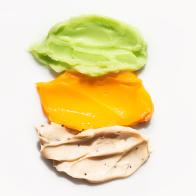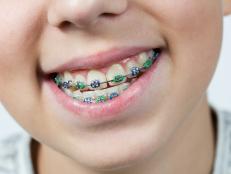Parenting Win of the Week: Let's Talk Brain Health
Here’s how you can nurture your child’s brain — as well as your own!


David Malan
We emphasize healthy eating for so many aspects of our lives and researchers are now starting to look at how nutrition impacts our brain health. Yes, food choices aren't just important for physical health, but also for mental health.
This is an emerging area, but one that piqued my interest, so I spoke with Dr. Laura Jana, a pediatrician who also advises the food company Braniac Foods — a new snack company with a focus on food for the brain, created by two dads with help from neurologists, pediatricians, and nutritionists. As more research comes out, more companies are taking a keen look at nutrition for our brain. MOSH, created by Patrick Schwarzenegger and Maria Shriver, is another one.
So, why should we care? Dr. Jana fills us in.
Brain health seems to be the new buzzword — what exactly is brain health and why are we just now paying attention to it?
The old adage "You Are What You Eat" has started to take on a whole new meaning as scientific advances show that what we eat fuels not only the body, but also the most important organ: the brain.
The Brain is like the CEO of our bodies, it literally makes us who we are and influences everything from basic body functions as well as mental performance and well-being. As such, a healthy brain can influence our mood as well as our ability to learn, focus, and create.
Doctors and neuroscientists now have more tools and research than ever before on how the brain functions and what positively affects brain health, and consumers are starting to really take notice of the connection between that and our nutrition — that just like our calcium-filled teeth and bones require us to eat and drink foods rich in calcium for their strength, our brains need the building-block nutrients for brain health and peak performance.
What sorts of vitamins/minerals/nutrients are we looking for to keep our brain healthy?
The brain is hungry — it demands approximately 1/5 of our daily calorie intake. There is a growing body of evidence that a Mediterranean diet rich in healthy fats and plants can support mental agility and reduce cognitive decline.
However, not all the foods and nutrients that help promote brain health are created equal in terms of how much they can impact the brain, and also some foods are easier to consume every day than others!
Experts agree; there are two superfood nutrients that are absolutely critical for optimal brain health that many of us aren’t getting enough of: Omega-3s DHA/EPA and choline.
OMEGA-3s DHA/EPA
The brain is made up of Omega-3 fatty acids, essential building blocks of brain cells that ensure normal development. Over 90% of the Omega-3s in your brain are DHA. While The World Health Organization recommends that 4 to 12 year olds consume 150-250mg of DHA/EPA every day and adults consume a minimum of 250mg, according to the CDC, American families are only consuming 20% of the recommended amounts, creating a brain nutrition gap.
That’s likely because while Omega-3 DHA/EPA literally makes up the foundation of the brain, it’s one of the most challenging to get in our traditional Western Diet as it’s really only found in fatty fish like salmon and mackerel and liver, or supplements containing Fish Oil or Algae Oil. However, more accessible foods containing this nutrient are becoming increasingly prevalent, like some fortified milk, eggs and yogurts, and some of Brainiac's snacks.
CHOLINE
Choline is the critical component for connecting our brain’s "information super high-ways"; it’s what enables our neurons to communicate. The National Institutes of Health recommends that 4 to 12 year olds consume approx. 300 mg of choline every day and adults should consume a minimum of 450mg (and even more for pregnant and nursing women). However, American families are only consuming 2/3 of the recommended daily intake (CDC), again fueling the brain nutrition gap.
Choline can be found in high amounts in eggs and in other veggies, such as broccoli and cauliflower. And while these are a bit easier to squeeze into our meals on a daily basis, the prevalence of choline in convenient snack formats helps to ensure kids and adults can both meet the daily recommended intake. Choline can be found in whole eggs, fish, soybeans, shiitake mushrooms, cottage cheese, and more.
As parents we have a lot to worry about — how important is it to now have another thing to add to the list?
We do the best we can to feed their bodies, but do need to start thinking about feeding their brains in the same way we approach giving them oranges for immunity, carrots for their eyes, and protein for growth.
Is this also important for adults?
While there is a lot of focus on brain health in the first 1,000 days and again later in life, our brains continue to develop throughout our life (less so in size, but more in terms of processing and connections). In fact, in the first 1,000 days through breastmilk and formula and other enriched foods, our youngest kids are likely getting the nutrients their brains need to thrive. However, for older kids, adults, and seniors, we need the right nutrition working alongside our genes to nourish the brain from development to everyday performance, and ultimately through lasting health as we age.
YOU MIGHT ALSO LIKE:
































































